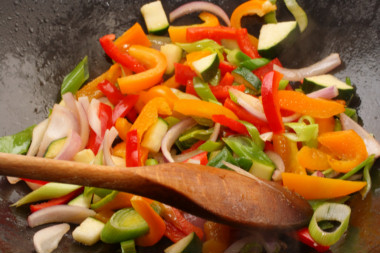









CORE WORDS
COMPOUND WORDS
appellate court | {n} | (court having jurisdiction to hear appeals) | arraign | {v} | (charge someone in a court of law) | bailiff | {n} | (legal officer to whom some degree of authority, care or jurisdiction is committed) | battered | {adj} | (beaten repeatedly or consistently) | coroner | {n} | (who presides over an inquest) | court | {n} | (hall, chamber, or place, where justice is administered) | court | {n} | (judge or judges) | court | {n} | (jurisdiction) | court | {n} | (persons officially assembled under authority of law) | court | {n} | (session of a judicial assembly) | court | {n} | (tribunal established for the administration of justice) | courthouse | {n} | (public building housing courts of law) | court martial | {n} | (court where cases of military law are heard) | court martial | {v} | (bring court martial proceedings against someone) | court of law | {n} | (court presided over by a judge) | court order | {n} | (a written command issued by a judge) | courtroom | {n} | (room where a judge presides) | dish | {n} | (contents of such a vessel ) | dish | {n} | (specific type of food ) | doomsday | {n} | (any day of decisive judgement) | doomsday | {n} | (day when God is expected to judge the world) | extrajudicial | {adj} | (carried out without legal authority) | fast food | {n} | (type of meal that is often pre-prepared and served quickly) | forensic | {adj} | (relating to, or appropriate for courts of law) | judgement day | {n} | (Last Judgement) | judicial | {adj} | (of or relating to a court of law) | Last Judgment | {prop} | (judgment day) | lawsuit | {n} | (case where a court is needed to resolve differences) | litigious | {adj} | (of or relating to litigation) | main course | {n} | (main dish of a meal) | ostracism | {n} | (in ancient Greece, the temporary banishment by popular vote) | purposefulness | {n} | (being intentional) | solicitor | {n} | Solicitor | starter | {n} | (first course of a meal) | supreme court | {n} | (court of law representing the highest legal authority within a jurisdiction) | try | {v} | (to put on trial) | usher | {n} | (doorkeeper in a courtroom) | verdict | {n} | (decision on an issue of fact in a civil or criminal case or an inquest) | writ | {n} | (A written order)
5000 WORDS
| L092 29 P3753 | pháp lý, theo pháp luật | gerichtlich
|  |
法院的 P3753
เกี่ยวกับการพิจารณาคดี P3753
pháp lý, theo pháp luật P3753
gerichtlich P3753
judicial, legal P3753
judicial P3753
legale, giudiziario P3753
judiciaire, juridique P3753
PHRASES
Hay muchos platos en la mesa.

There are a lot of dishes on the table .
(ENG )
(ES )
(0309)
         
|
Este es el tribunal.

This is the court .
(ENG )
(ES )
(0496)
         
|
El tribunal aplica la ley.

The court implements the law .
(ENG )
(ES )
(1291)
         
|
Estoy salteando un plato.

I am stir-frying a dish .
(ENG )
(ES )
(2396)
         
|
No hables con el megáfono dirigido a mí.

Don not speak with the megaphone aimed at me .
(ENG )
(ES )
(3076)
         
|
Me encanta comer platos chinos, como el pato asado de Beijing, por ejemplo.

I love eating Chinese dishes , like Beijing roast duck , for instance .
(ENG )
(ES )
(3325)
         
|
Guangzhou está bajo la jurisdicción de la provincia de Guangdong.

Guangzhou is under the jurisdiction of Guangdong province .
(ENG )
(ES )
(3356)
         
|
Hoy en día hay una gran variedad de platos.

Today there is a huge assortment of dishes .
(ENG )
(ES )
(3458)
         
|
He took the car on trial . | Llevó el auto a juicio.
|
That man is going on trial next week . | Ese hombre irá a juicio la próxima semana.
He kept his eyes fixed on her face . | Mantuvo los ojos fijos en su rostro.
Do you like to cook japanese foods ? | ¿Te gusta cocinar comida japonesa?
The storm has done no harm . | La tormenta no ha hecho daño.
He was put to death finally . | Finalmente fue ejecutado.
This letter is addressed to you . | Esta carta está dirigida a usted.
Llevó el auto a juicio.
| Ese hombre irá a juicio la próxima semana.
| Mantuvo los ojos fijos en su rostro.
| ¿Te gusta cocinar comida japonesa?
| La tormenta no ha hecho daño.
| Finalmente fue ejecutado.
| Esta carta está dirigida a usted.
|
|
|
|
|
|
|



































































































